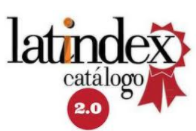Historia y Relaciones Internacionales. Carlos Escudé: una lectura desde la Periferia
DOI:
https://doi.org/10.35305/cc.vi135.136Keywords:
historia, relaciones internacionales, Carlos EscudéAbstract
From the second half of the 20th century, Latin America takes part, from the theoretical field, in the revisión of the ways of interpreting the international system, strongly influenced by its peripheral condition in an international system marked historically by the power politics of the "great" international actors and the diverse forces that cross them. In this way, the need to overcome the logic of power and the ways of interpreting international politics from their own theoretical routes is raised. This is how the logocentrism of International Relations, in a presentist and state-centric key, is revisited, from the Periphery, to build, in dialogue with history, new theoretical approaches. In this context, Peripheral Realism, a theory of International Relations developed by Carlos Escudé, emerged in the 1990s from Argentina. The question to ask is what is the importance assigned to history in the explanation of International Relations, taking into account that, from its realistic reading, the immutability of the international system in terms of power relations, the imperative that the Periphery accept its rules in
pursuit of its international insertion and the trajectories of humanity under the assumptions of power.
Downloads
Downloads
Published
How to Cite
Issue
Section
License

This work is licensed under a Creative Commons Attribution-ShareAlike 4.0 International License.
Aquellos autores/as que tengan publicaciones con esta revista, aceptan los términos siguientes:
- Los autores/as conservarán sus derechos de autor y garantizarán a la revista el derecho de primera publicación de su obra, el cuál estará simultáneamente sujeto a la Licencia Creative Commons Reconocimiento-NoComercial-CompartirIgual 4.0.
- Los autores/as podrán adoptar otros acuerdos de licencia no exclusiva de distribución de la versión de la obra publicada (p. ej.: depositarla en un archivo telemático institucional o publicarla en un volumen monográfico) siempre que se indique la publicación inicial en esta revista.
- Se permite y recomienda a los autores/as difundir su obra a través de Internet (p. ej.: en archivos telemáticos institucionales o en su página web) antes y durante el proceso de envío, lo cual puede producir intercambios interesantes y aumentar las citas de la obra publicada.
















